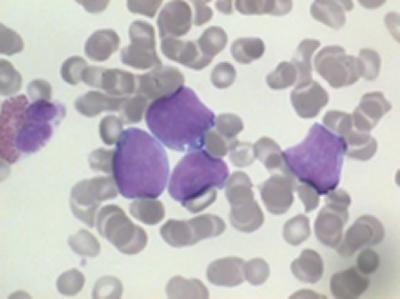Southampton research delves deeper into the genetics of rare and understudied blood cancer

Southampton scientists hope to improve treatment of a rare form of non-Hodgkin Lymphoma by using state-of-the-art screening techniques to unveil the gene mutations that cause it.
Splenic Marginal Zone Lymphoma (SMZL), a cancer of the lymphatic system, accounts for less than 3% of all cases of lymphoma.
Because of its relative rarity there has been a lack of research into SMZL and little is known about the mutations that cause the disease. However, Dr Jonathan Strefford and his team at the University of Southampton are eager to shed light on the causes of the disease.
To aid them in their work, they have been awarded £170,000 by the blood cancer charity Leukaemia & Lymphoma Research.

The team will use a new and cutting-edge ‘gene sequencing’ technology to look through patients’ genes and discover the mutations that cause SMZL. The sophisticated ‘high resolution’ equipment made available to the team will generate highly detailed results and will help them to improve on less comprehensive results from prior research.
By revealing the effects of particular mutations in patients, the team will be able to identify ’genetic signs’ linked to a poor prognosis and determine which patients require higher doses of drugs or treatment at an earlier stage.
Dr Jonathan Strefford, head of the team at the University of Southampton, said: “Finding these gene mutations will increase our understanding of how SMZL progresses and allow us to predict patient prognosis. These predictions can then be taken into account by doctors to ensure that those with a more aggressive disease are given the treatment that they need.”
Professor Chris Bunce, Research Director at Leukaemia & Lymphoma Research, said: “Compared to other blood cancers this rare form has been understudied, so research into it is encouraging and, if successful, will revolutionise clinical management of the disease.”